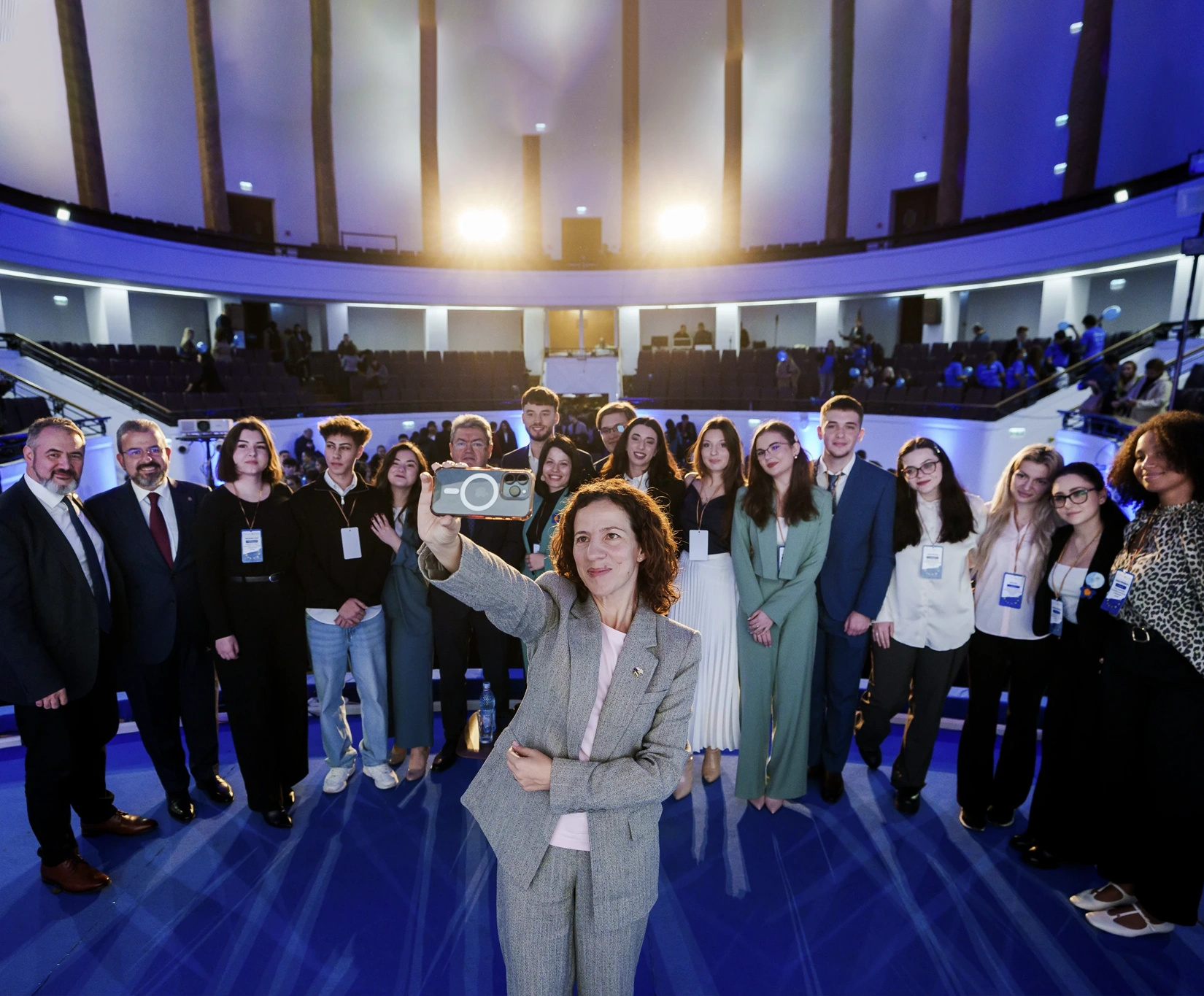On Friday, 21 November 2025, the University of Bucharest, in partnership with Europuls – the European Expertise Center, organized the most extensive public dialogue ever held in Romania between citizens and a high-level European decision-maker: Roxana Mînzatu, Executive Vice-President of the European Commission responsible for social rights and skills, quality jobs, and training. The event brought together students, professors, experts, and representatives from academia, the private sector, and civil society, as well as citizens interested in speaking directly with Romania’s most prominent representative in Brussels.
The University of Bucharest delegation that welcomed Roxana Mînzatu was led by UB Rector, Prof. Marian Preda, PhD.
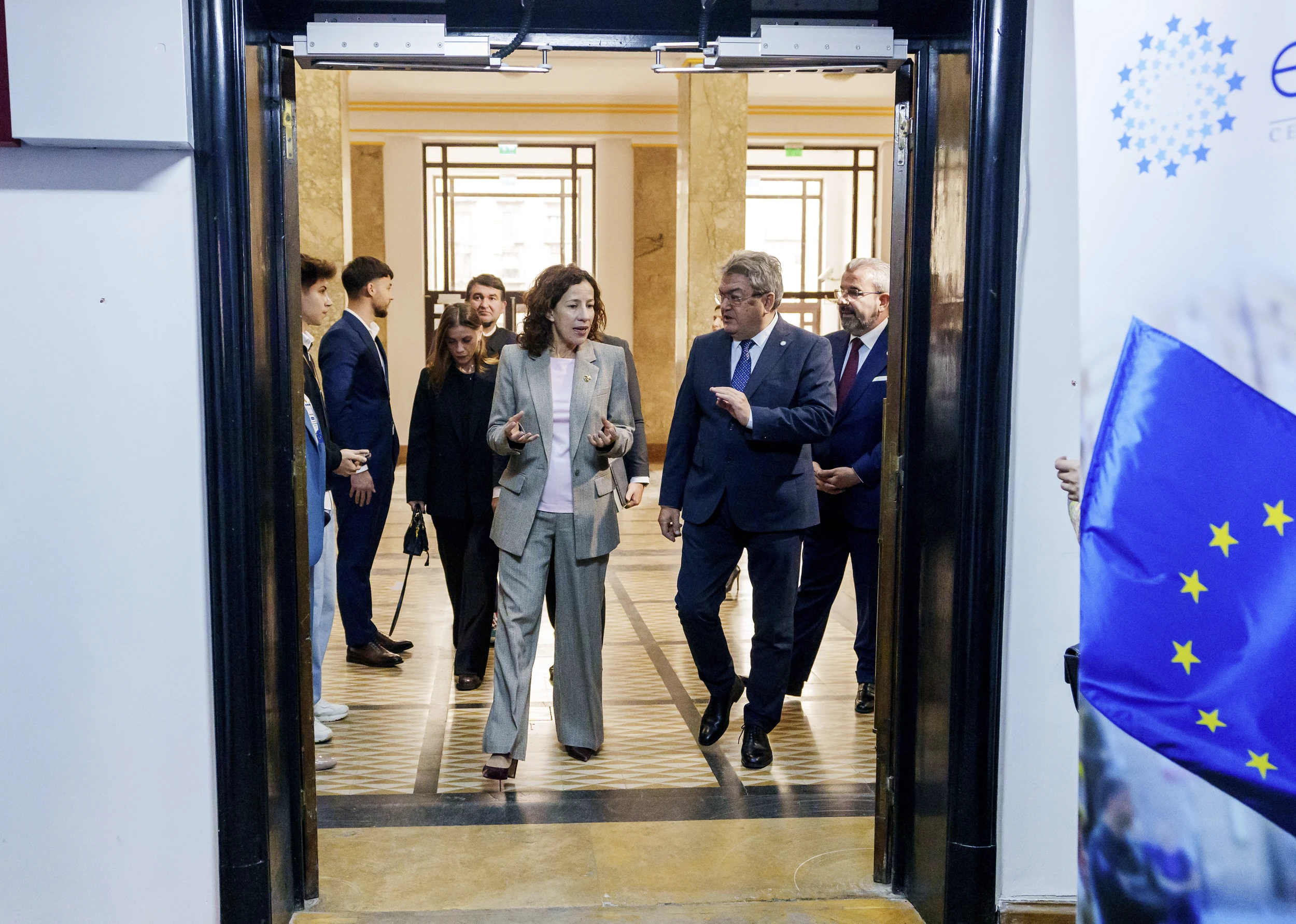
UB was also represented by Assoc. Prof. Sorin Costreie, PhD, President of UNICA – Network of Universities from the Capitals of Europe and coordinator of the CIVIS Alliance at UB, and by Assoc. Prof. Constantin Vică, PhD, Director of the Humanities Section of the University of Bucharest Research Institute.
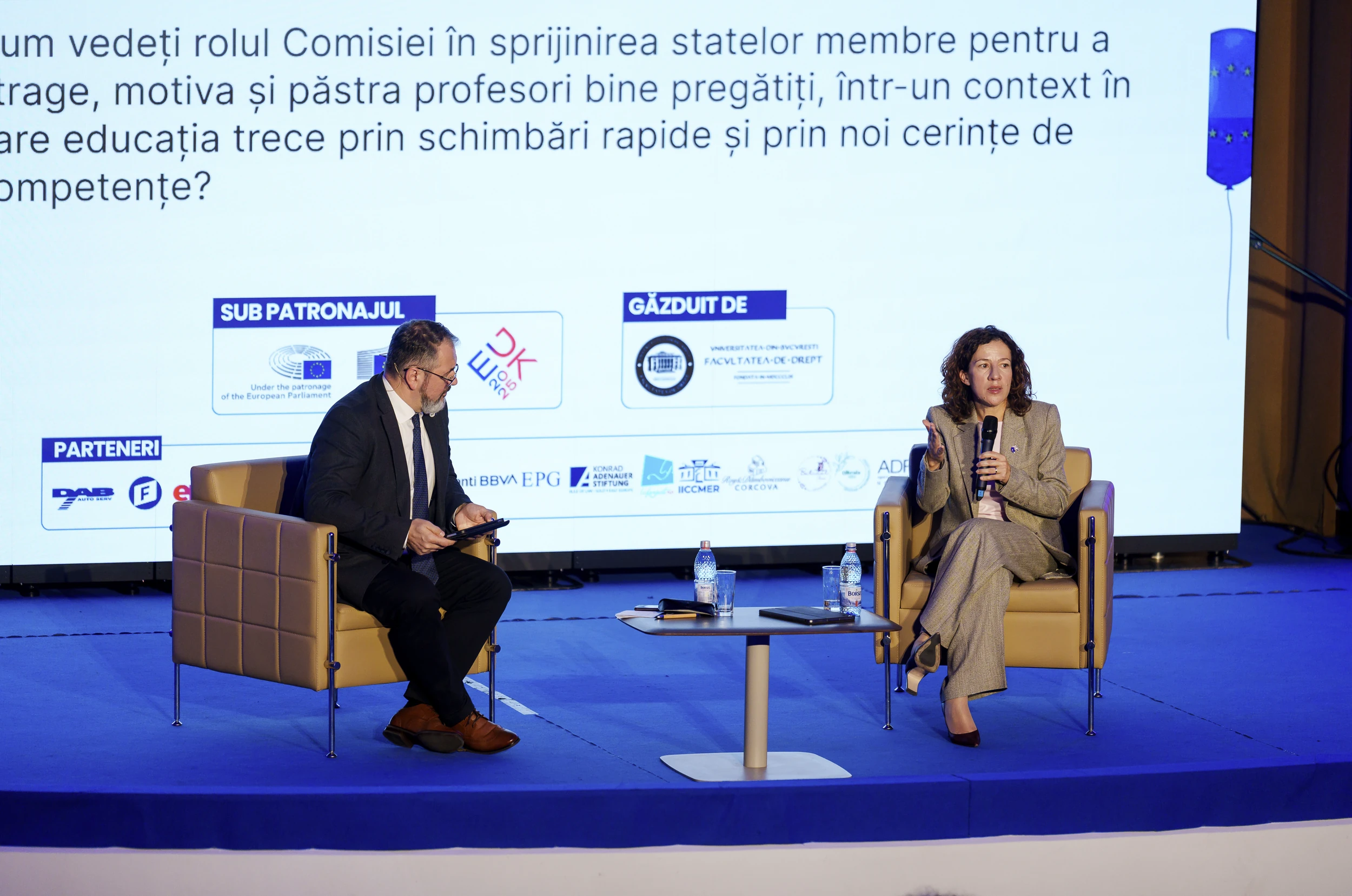
Assoc. Prof. Paul Pop, PhD, Vice-Dean of the UB Faculty of Law, was also part of the delegation.
18 years of Romania in the EU: from the University in the heart of Bucharest to the University in the heart of Europe
During the dialogue, Roxana Mînzatu offered a broad overview of Romania’s evolution over the past 18 years as an EU member, while also addressing the vulnerabilities that continue to shape this relationship.She opened the event with the following remarks: “Romania has changed its face in these 18 years. Being part of the European family has brought major benefits, lifted many people out of poverty and social exclusion, and transformed lives for the better. Europe feels at home in Romania… but Romania still does not feel fully at home in Brussels or everywhere in Europe. Romania must be present in Europe – in the major debates on security and competitiveness. We are a large and important country, with a strategically significant position in the Black Sea region.”
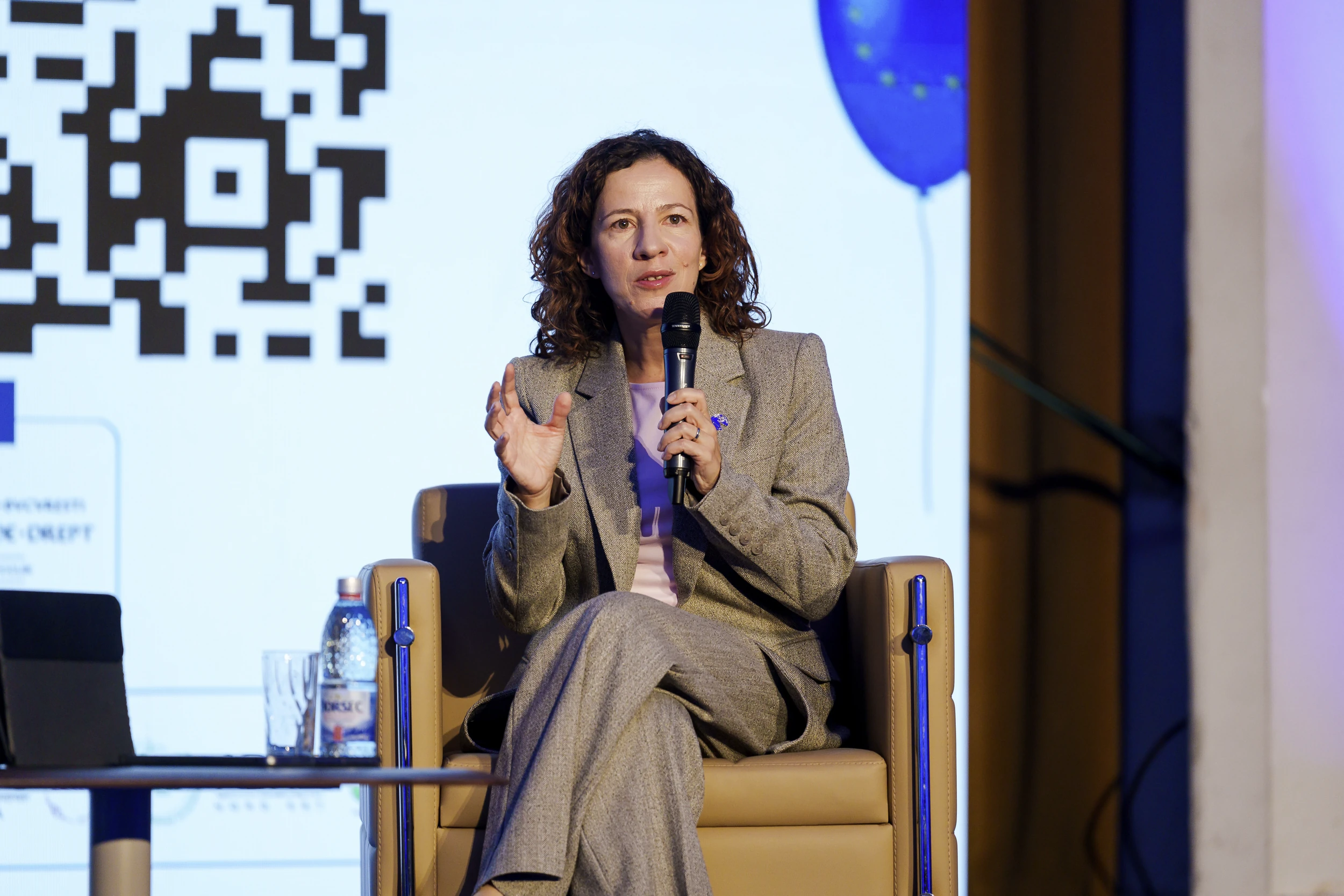
The discussion was moderated by Tana Foarfă, Executive Director of Europuls, Assoc. Prof. Sorin Costreie, and Francesca Cristea, Head of Policy at Europuls. It explored key issues shaping Romania’s future in the EU, starting from the question: “Romania and the EU – a long-distance relationship built on trust?”
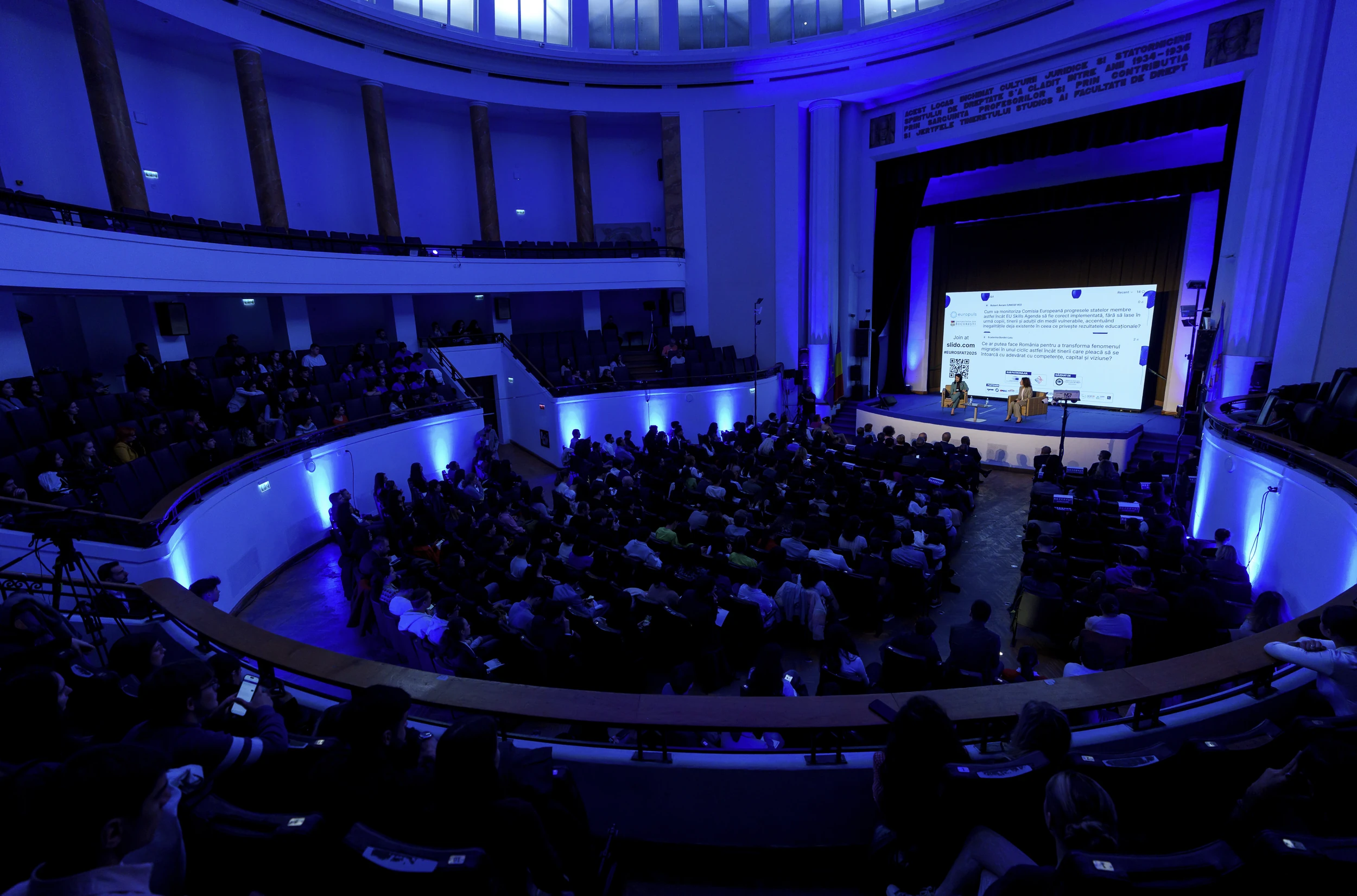
The dialogue was lively and engaging, driven by participants’ strong interest in topics such as the future of education, the labor market, workers’ dignity, combating disinformation, and the ways Romania can strengthen its voice in European policymaking. Discussions highlighted how Romania can contribute more effectively to the European project by taking part in the development of common policies and fostering trust between citizens and European institutions. Participants also examined Europe’s economic competitiveness and the future of work, especially as digitalization and the green transition reshape labor markets.
The future of European education, debated at the University of Bucharest
Ambassadors, students, professors, entrepreneurs, journalists, and members of the academic community raised concrete challenges, engaging in a genuine exchange of ideas about Romania’s European trajectory and the role of education in preparing new generations for the EU’s profound transformations.

The dialogue also demonstrated that the Romanian public is not only interested but ready to contribute to major European debates – affirming the mission of the EUROSFAT Forum to provide a vital space for direct interaction between citizens and policymakers.
Education was another central theme – not just as a driver of economic development, but as a cornerstone for promoting democratic and European values. Participants discussed how younger generations can help shape future EU priorities, the outlook for the post-2027 Multiannual Financial Framework, and the importance of directing European investments toward developing future skills. Special attention was given to European university networks, especially as 26 Romanian universities are now members of such alliances. The University of Bucharest is one of them: in 2019, it co-founded the European Civic University CIVIS with seven other prestigious universities. In 2025, the CIVIS network brings together 11 top European institutions: Aix-Marseille University, the National and Kapodistrian University of Athens, the University of Bucharest, the Free University of Brussels, the University of Glasgow, the Autonomous University of Madrid, Sapienza University of Rome, Paris Lodron University of Salzburg, Stockholm University, Eberhard Karls University of Tübingen, and the University of Lausanne.
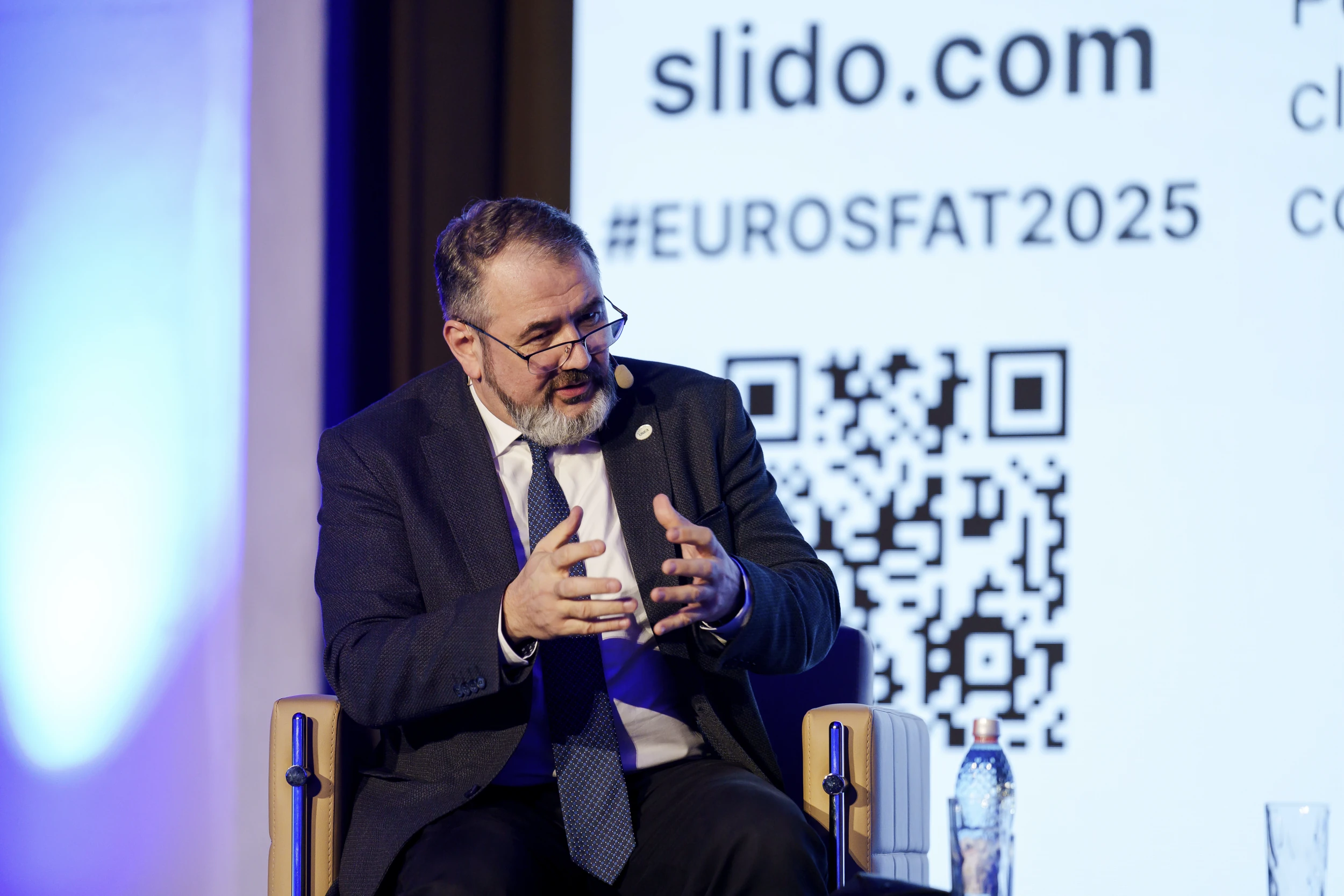
Roxana Mînzatu’s responses provided context and clarity on these subjects, as well as on other key issues for Romanian society: declining basic skills across Europe, the need to reinvigorate teacher training, the importance of protecting mobile workers, and the critical role of education in strengthening democratic resilience.
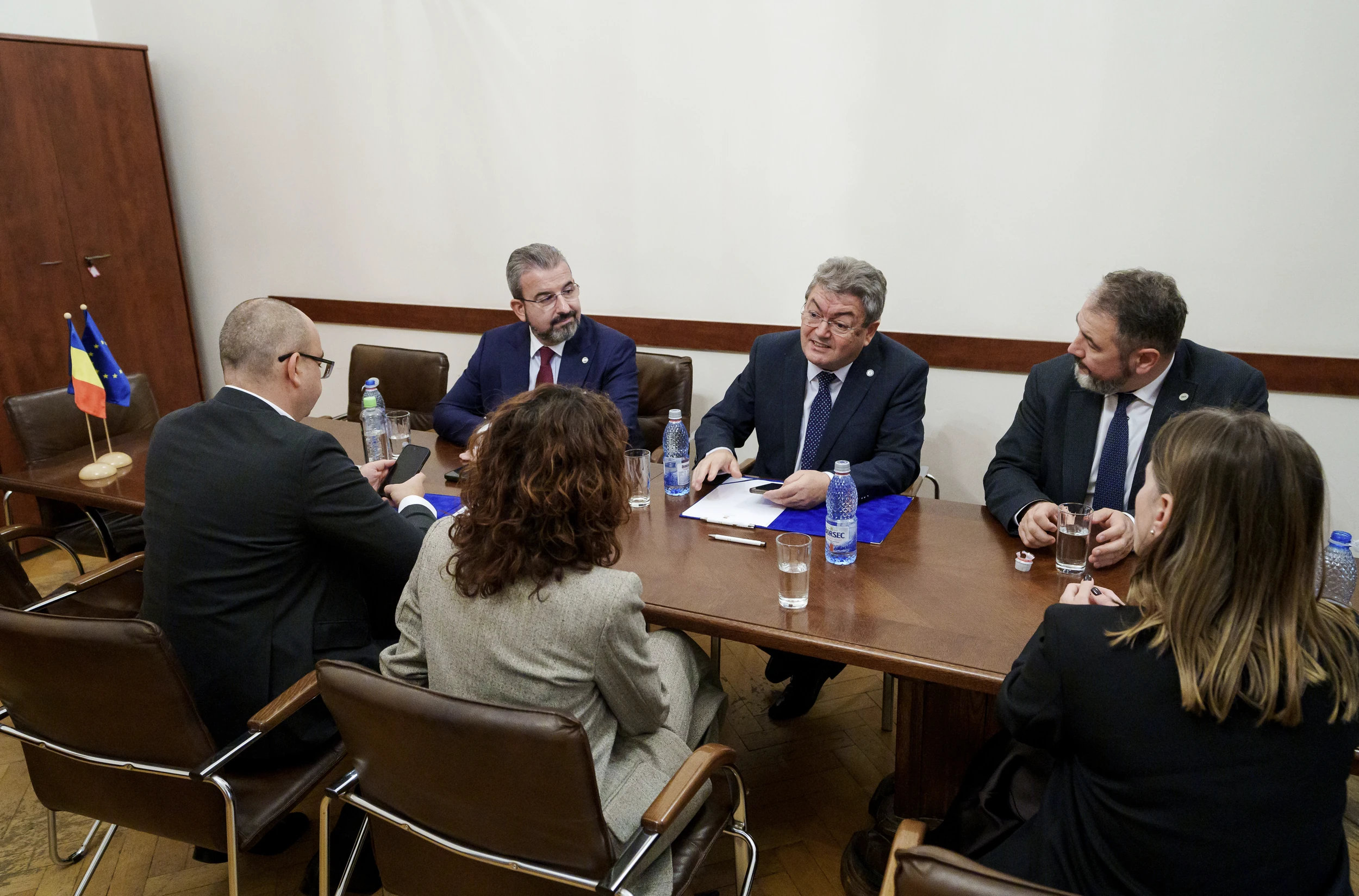
The event was followed by bilateral meetings between European Commission representatives and the UB leadership: Prof. Marian Preda, PhD; Assoc. Prof. Sorin Costreie, PhD; and Assoc. Prof. Paul Pop, PhD.
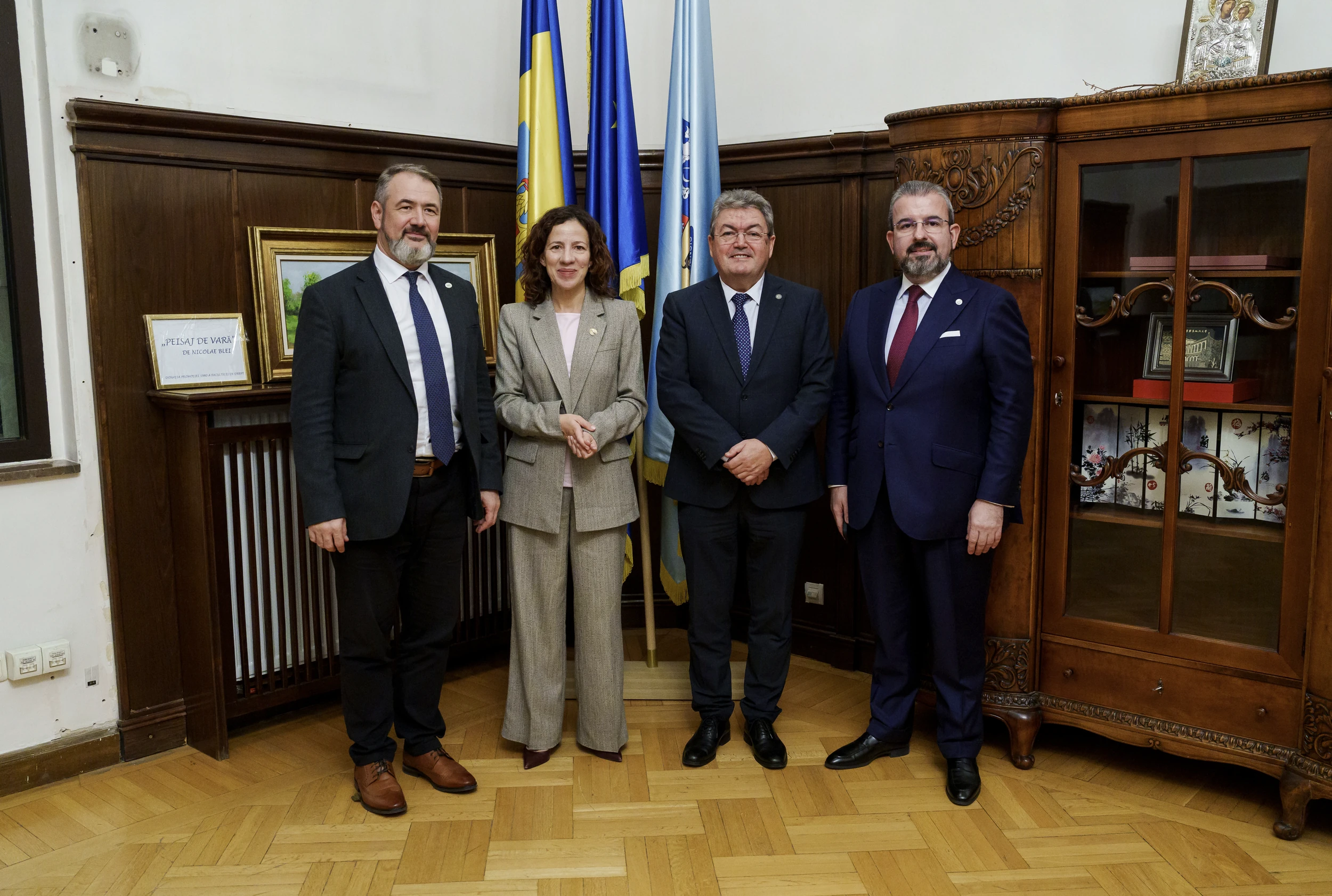
An event held Under European patronage and supported by numerous partners
As in previous years, the dialogue took place under the patronage of the European Parliament, the European Commission, and the rotating Presidency of the Council of the EU. It was supported by EUROSFAT 2025 partners, including the European Parliament Liaison Office in Romania, the European Commission Representation in Romania, the Danish Presidency of the Council of the EU, the University of Bucharest Faculty of Law, the Friedrich Naumann Foundation, eMAG, the American Chamber of Commerce in Romania (AmCham), DHL, Garanti BBVA, the Energy Policy Group, the Institute for the Investigation of Communist Crimes and the Memory of the Romanian Exile, LiderJust Association, the Konrad Adenauer Foundation Rule of Law Program for South-East Europe, Roy & Dâmboviceanu Corcova, Oltenia Bizza, Phoenix Boutique, the North-East Regional Development Agency, the Federation for Innovation and Sustainable Competitiveness in SMEs, and Fonduri-Structurale.ro.
A special anniversary edition of the EUROSFAT 2025 Forum
This dialogue represented the second stage of the EUROSFAT 2025 Forum – the largest European affairs forum in Eastern Europe – organized annually by Europuls.
The first stage, held on 22 September 2025 under the title “Romania’s Coming of Age in the EU,” featured eight sessions, including the first public debate on the new Multiannual Financial Framework and an important discussion about Romania’s OECD accession process. It brought together more than 330 participants and 45 speakers.
About the University of Bucharest
Founded in 1864, the University of Bucharest has, since 2019, been a member of the CIVIS European Civic University Alliance alongside ten other top European universities, becoming an increasingly influential contributor to the development of European higher education.
In the Times Higher Education Impact Rankings 2025 – one of the world’s three most prestigious rankings measuring universities’ contributions to sustainable development –UB ranks first in Romania and 25th worldwide for quality of education. Overall, UB ranks 93rd globally in the 2025 Impact Rankings, marking a national milestone: the first time a Romanian university has entered the world’s top 100.
The University of Bucharest also confirms its leading position in Romanian higher education in the QS World University Rankings 2026, advancing to the 761–770 range from 801–850 the previous year – one of its best performances of the past decade. UB stands out particularly in graduate employability and employer reputation, ranking first nationally for both. According to the 2026 QS edition, 81.1% of UB graduates secure employment within 7–11 months of completing their studies.
UB is also currently ranked as Romania’s best university for international students, according to the Study Abroad Aide World University Rankings, placing it among the top 11% globally. In addition, the newly released THE Interdisciplinary Science Ranking 2025 places UB first nationally and among the top 350 universities worldwide in interdisciplinary research.
About Europuls
Europuls – the European Expertise Center is a non-governmental organization founded in 2010 in Brussels by a group of Romanian specialists in European affairs. Its mission is to promote European integration in Romania and to strengthen the development of a European public sphere.
Europuls fosters public debate on European issues through articles, studies, debates, workshops, and conferences featuring European Commissioners, Romanian and foreign MEPs, political leaders, civil society representatives, experts, and journalists.
Committed to supporting European integration as a core mission, Europuls works each year to innovate the way it brings the European agenda to Romania, actively addressing Euroscepticism and building bridges of dialogue between citizens and Europe.
More details about the projects developed by Europuls are available here.



